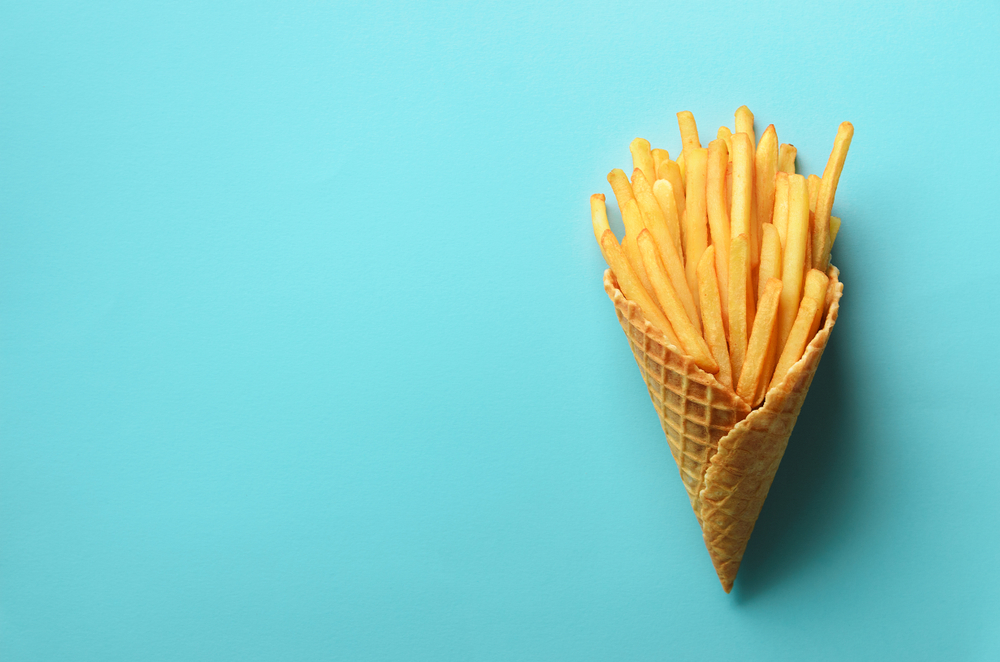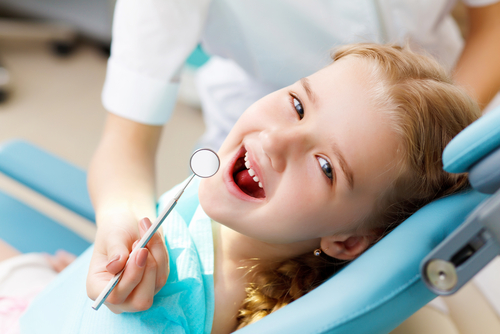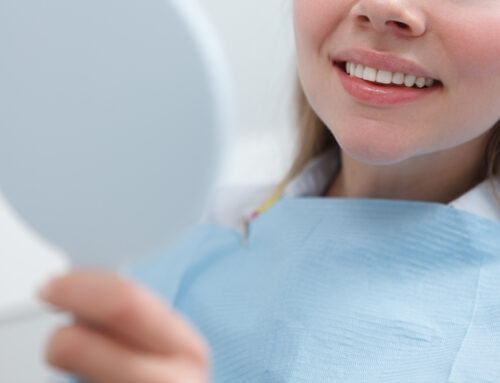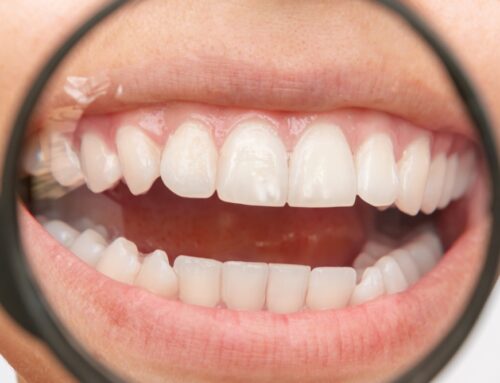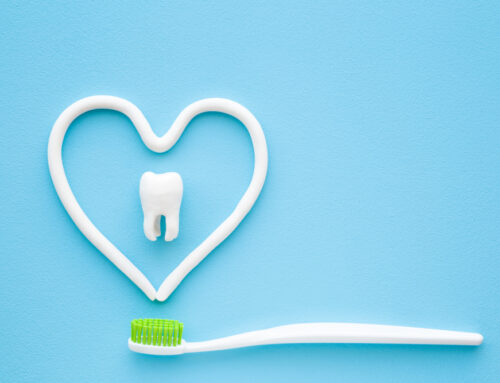Oral Health & Obesity
Almost everyone in the U.S. has heard the phrase “obesity epidemic” being thrown around at least a few times in their lives. That’s because obesity affects millions of people in the U.S., causing health problems and decreased quality of life. Today, we’ll cover just one of the small topics surrounding this overarching issue — oral health. Although we often think of oral health as something that affects just the teeth, this is not quite right. Keep reading to learn about the connection between your oral health and obesity.
U.S. Obesity
Generally speaking, obesity is a condition characterized by the excessive accumulation and storage of fat in the body. Today, this is a huge issue not just for the average American adult but even for young children. In fact, according to the CDC, the “U.S. obesity prevalence was 41.9% in 2017 – March 2020”. Unfortunately, obesity can lead to multiple medical issues and conditions, such as diabetes, hypertension, and respiratory problems – to name just a few.
Oral Health And Overall Health
As we often assume, your oral health does have a direct impact on your teeth and gums. We all know this from dentist visits where we get our teeth cleaned and maybe the occasional filling or two. Having said that, what you might be less aware of is the fact that your oral health is also linked to the rest of your body’s health.
Here are a few of the ways in which your oral health can affect your physical health.
Getting Enough Vitamins
If you’ve ever tried to eat a meal with a toothache, you probably understand the challenge of getting enough nutrients when your teeth are in bad shape. Many healthy foods such as carrots, meat, apples, and celery require healthy, strong teeth in order to chew thoroughly.
Infection and Diseases
You probably know that your mouth is filled with bacteria. Most of the time, some bacteria are normal. Having said that, left unchecked, bacteria can flourish, and certain strains can begin wreaking havoc on other organs.
Pneumonia
Pneumonia is an infection of the lungs, typically caused by a virus, bacteria, or fungi. Unfortunately, some types of bacteria can travel down from your mouth to your lungs. In order to reduce the risk of this occurring, make sure to brush your teeth regularly and visit your dentist for annual check-ups and cleanings.
Endocarditis
Generally speaking, endocarditis is when inflammation of the inner lining of the heart’s chambers and valves occurs. This is most often caused by a germ, such as bacteria or fungi. Unfortunately, bad oral health can increase your risk of developing endocarditis. This is because bacteria from the mouth can occasionally enter your bloodstream, traveling down to the heart.
Obesity And Oral Health
Now, let’s talk a bit about where obesity comes in throughout all this. As you might have guessed from the info above, diet directly affects your teeth, mouth, and overall health. The Obesity Action Coalition states that “studies have shown that individuals affected by obesity have more oral health problems than other individuals.”
Here are just a few ways in which obesity might have an impact on your oral health:
Cavities In Teeth
We often think of brushing teeth as the only requirement for good oral health, but that’s not always true. What food and drinks you consume are just as important. Many individuals who struggle with excess weight may consume too much sugar and carbs. As we know, bacteria can then feed on these sugars and produce harmful acids that eat away at your teeth. Sodas and other sugary drinks are particularly harmful in this aspect. Furthermore, frequent snacking is another common cause of obesity and can also contribute to tooth decay. Due to these factors, you might see a relationship between obesity and tooth decay.
Gingivitis And Periodontitis
While excess fat may not necessarily create bad teeth, some of the causes and side effects of obesity lead to a greater risk of periodontal (gum) disease and dental decay. Some studies even point to insulin resistance as the connection between gum disease and obesity.
If you are experiencing inflammation, bleeding, or redness of the gums, don’t hesitate to get a dental check-up. A dentist can perform a cleaning, assess the state of your dental health, and recommend a course of action.
For children, please explore our pediatric dental services. Adults can visit this page to find a list of our general dental services.
Children’s Dental Health
The next thing we want to talk about is the small difference between adult and children’s health. Most children aren’t able to brush their teeth very well until they’re a bit older, so they need help from parents.
Brushing Teeth
Contrary to popular belief, dental care starts from very early on, before the first tooth even comes in. Make sure to ask your family dentist regarding how to take care of your baby’s gums. After your baby turns a few months old, you may want to start gently cleaning their gums with a damp, clean gauze. Once their first tooth comes in, you’ll be able to clean it daily just as you would your own teeth.
Eventually, as your child gets older, you can start giving them a kid’s toothbrush. Try to choose something that’s a good size for them and is comfortable for them to hold. You may want to brush your teeth together for a few more years and help out as needed. Keep in mind that young kids don’t have the best motor skills and may not be able to do a thorough brushing all on their own.
Sippy Cup
As most new parents know, babies and young children usually need their own eating and drinking utensils until they get older. This usually starts off as a baby bottle and eventually graduates to a sippy cup. Of course, you want to make sure you choose quality utensils made from safe materials.
Aside from this, however, you might be surprised to learn that what you put into your child’s cup matters, too. Oftentimes, baby bottles and sippy cups are specifically constructed to be easy and enjoyable to drink out of. This is a huge plus for many parents, but it’s also something to be wary of. Remember that even “healthier” drinks such as juice have lots of natural sugars. So, putting them into a sippy cup can encourage your child to sip on sugar throughout the entire day. Due to this, you may want to consider limiting your child’s access to their sippy cup to just a few hours per day or filling it with plain water.
Keeping a Healthy Weight and Smile
A 2016 study found that Americans consume more sugar per capita than any other country. That’s because our food tends to have a lot of hidden sugars.
Here are a few general tips for staying healthy and avoiding these hidden sugars:
- Drink lots of water to stay hydrated.
- Skip the sugary drinks and sweets.
- Avoid junk food.
- Get some exercise. This can look like anything from soccer practice to swimming or even daily walks.
- Follow through with a regular oral hygiene routine.
- Floss and brush at least twice daily.
- Visit your dentist for check-ups.
Drinks like fruit juice, energy drinks, and soda all contain high amounts of sugar and carbs. Try to switch these out with healthier options such as water, sugar-free tea, or other low-calorie options. The same goes for candy and junk food. Remember that sticky and hard candies are a double threat because they linger in your mouth for longer, allowing for bacteria to flourish.
We know that avoiding sugar is a challenge, but it can help you reduce your weight, improve your health, and keep your teeth bright and healthy. Always feel free to ask your primary care provider and dentist for advice regarding what to eat. They’ll be more than happy to help.
Taking Care of Your Teeth
Now that we’ve talked a bit about obesity, let’s talk about how to take care of your teeth. Aside from a good diet, the other important thing is to practice good dental care habits. Keep reading to hear some more great tips.
Brushing Teeth
Always make sure to use a good toothpaste and toothbrush when brushing. If possible, try to use a soft or medium-soft bristle toothbrush. It might not seem like much, but the problem with harder bristle toothbrushes is they can actually wear away your enamel and push back your gums. You may also want to consider buying a good electric toothbrush (they’re more effective than manual brushes). When buying toothpaste, choose something that suits your needs. There’s whitening toothpaste, fluoride toothpaste, sensitivity toothpaste, and many other options. Do make sure to talk to your dentist before using a toothpaste that has added fluoride.
Always practice proper brushing techniques. Be thorough, and try to reach every tooth from all sides. The back wisdom teeth are particularly hard to reach and have lots of small crevices. If you feel that you’re not able to properly reach those areas, ask your dentist about sealants.
Last but not least, make sure to brush your teeth twice daily. Try not to overdo it with the brushing, though, because that can wear away enamel over time. You can limit snacking in between meals so that you only have to brush a few times a day.
Floss Your Teeth
Aside from brushing, however, you also need to keep up with regular flossing. Those tiny spaces between your teeth and gums can harbor plaque and bacteria and let cavities burrow in where your toothbrush can’t reach. This is where flossing comes in. Floss is able to slide between teeth and pull out small food particles.
Pediatric Dentist Tennessee
Are you looking for a highly qualified, compassionate team to take care of your dental health? Meet Snodgrass-King Dental! Not only do we offer dental services for adults, but for kids, too! This means that your whole family can come get their dental check-ups and cleanings at the same place.
Snodgrass-King Dental has locations all across Middle Tennessee, including ones in Franklin, Spring Hill, Murfreesboro, and Mt. Juliet, TN. Simply give your closest one a call to book an appointment. We offer services such as fillings, extractions, implants, dentures, and much more.
The best part about us, however, is that our staff is compassionate. If you’re concerned about how your diet is affecting your teeth, simply ask your dentist. We’re happy to answer any questions you may have.


